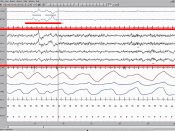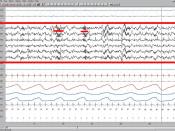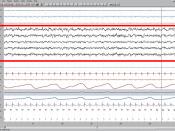AbstractSleep is an important component of human life. The effects of sleep can be devastating to the human mind and body. Up until the 20thcentury most scientists believed that the human body and mind were dormant while sleeping. However; science now has the knowledge of the multitude of functions the human brain is engaged in while sleeping. Dreaming is one of the more fascinating aspects of sleeping. The effects of dreaming vary from talking to twitching. There are also sleep disorders that plague many individuals. Insomnia, narcolepsy and sleep apnea are three of the most common. There is no doubt that sleep is one of the most fascinating functions of the human body.
Sleep is one of the most essential parts of living; without the proper amounts of sleep a person can suffer devastating effect on the body and mind. The whole of human existence is based on sleep and the immense need that there is for this stage of human consciences.
Human sleep has been described as a succession of five recurring stages. Four of these stages are described as non-REM stages and one stage is the ever important REM sleep stage. What really happens when humans sleep; what process does the brain go through? Why do individuals dream and what does it mean? In this paper there will be a discussion of the following topics:1. What physiological changes occur in REM sleep?2. How does the body regulate sleep?3. Dreaming and REM sleep4. What are some disorders associated with REM sleep?What physiological changes occur in REM sleep?The brain receives a lot of input during the day and it processes, sorts out, rejects and records data during sleep. For this to be effective, an average person needs about 8 hours of sleep, this varies in individuals. The depth of sleep...


